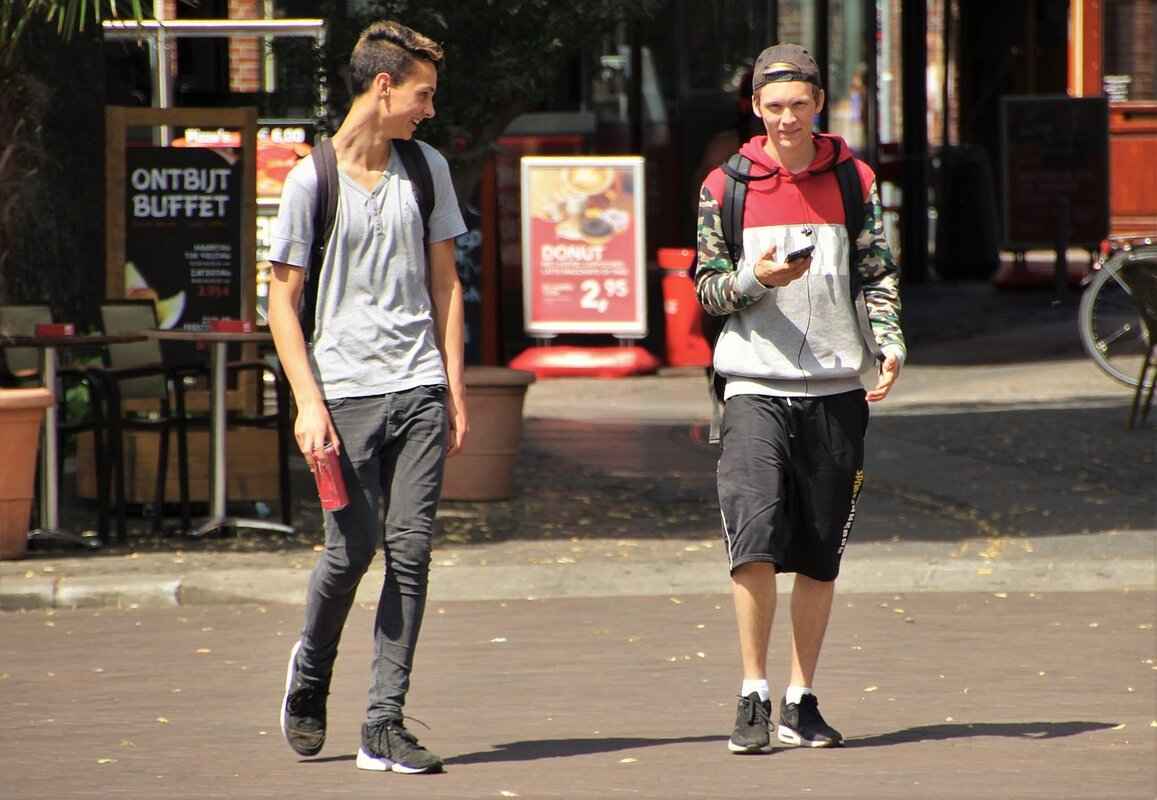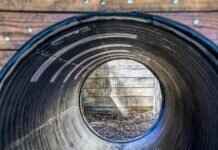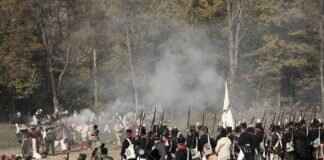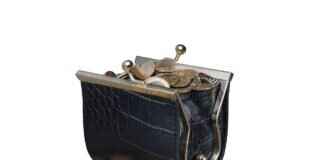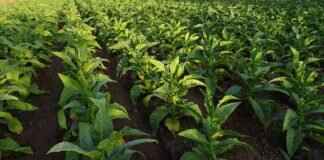Squirtle is one of the most beloved Pokémon in the franchise, known for its charming appearance and formidable capabilities in battles. This article will delve into Squirtle’s attack power, unique abilities, and effective strategies for building a well-rounded team. By understanding these elements, trainers can maximize Squirtle’s potential and enhance their competitive gameplay.
Understanding Squirtle’s Attack Power
Squirtle’s attack power is crucial for its success in battles. With a base Attack stat that allows it to deal significant damage, trainers should focus on moves that complement this strength. The combination of Squirtle’s defensive capabilities and its attack power makes it a versatile Pokémon in various matchups.
Special Abilities of Squirtle
One of Squirtle’s standout features is its ability to learn a variety of moves, including those that can inflict status effects on opponents. Its signature move, Water Gun, is effective against Fire-type Pokémon, while its ability to learn moves like Protect can shield it from damage.
Water Type Advantages
As a Water-type Pokémon, Squirtle enjoys advantages in battles against Fire, Rock, and Ground types. However, it is vulnerable to Electric and Grass-type moves. Understanding these strengths and weaknesses is essential for developing effective battle strategies.
Effective Moves for Squirtle
To maximize Squirtle’s attack power, trainers should equip it with moves like Hydro Pump and Surf, which leverage its Water-type advantage. Additionally, moves that inflict status effects can provide strategic benefits during battles.
Countering Squirtle’s Weaknesses
Every Pokémon has its vulnerabilities, and for Squirtle, Electric and Grass-type moves pose a significant threat. Trainers can mitigate these weaknesses by pairing Squirtle with Pokémon that can absorb these types of attacks and counter effectively.
Team Composition Strategies
Building a balanced team around Squirtle is essential for enhancing its effectiveness. Trainers should consider selecting Pokémon that cover its weaknesses while complementing its strengths. For instance, pairing Squirtle with a strong Electric-type Pokémon can create a formidable duo.
Building the Best Team for Squirtle
Creating an optimal team requires an understanding of synergy between Pokémon. Trainers should focus on selecting team members that not only support Squirtle but also bring their own unique strengths to the table.
Choosing Complementary Pokémon
When selecting partners for Squirtle, consider Pokémon that can handle its weaknesses. For example, Grass-type Pokémon can protect Squirtle from Electric-type moves, while Fighting-types can provide additional offensive capabilities.
Balancing Offensive and Defensive Roles
A successful team needs a balance of offensive and defensive roles. Incorporating Pokémon that can absorb damage while Squirtle unleashes powerful attacks will create a well-rounded and effective team strategy.
In conclusion, by understanding Squirtle’s attack power, special abilities, and how to build a complementary team, trainers can significantly enhance their performance in battles. With the right strategies, Squirtle can shine as a valuable asset in any Pokémon trainer’s roster.

Understanding Squirtle’s Attack Power
Squirtle, a beloved Water-type Pokémon, is known for its charming appearance and strategic capabilities in battles. One of the most critical aspects of Squirtle’s performance is its attack power, which plays a significant role in determining how effectively it can engage opponents. In this section, we will explore Squirtle’s base stats, the implications of its attack power, and how these factors can influence battle outcomes.
Squirtle has a base attack stat of 48, which, while not the highest among Pokémon, provides a solid foundation for its battle performance. This attack power is complemented by its access to a variety of moves that can enhance its effectiveness. For example, moves like Water Gun and Bite allow Squirtle to deal significant damage, especially when combined with strategic type advantages.
Understanding the synergy between Squirtle’s attack power and its moveset is essential for maximizing its potential. The effectiveness of its attacks can be further enhanced by considering factors such as STAB (Same Type Attack Bonus). When Squirtle uses Water-type moves, it receives a boost to its damage output, making it even more formidable against opponents weak to Water-type attacks.
Moreover, Squirtle’s attack power is influenced by its level and the training it undergoes. As it evolves into Wartortle and eventually Blastoise, its attack capabilities increase significantly, allowing for more powerful moves and strategies. This evolution not only enhances its base stats but also opens up new tactical options in battles.
In summary, while Squirtle’s attack power may seem modest at first glance, its effectiveness can be greatly amplified through strategic move selection, STAB advantages, and careful training. By understanding these elements, trainers can optimize Squirtle’s performance in battles, making it a valuable asset to any team.

Special Abilities of Squirtle
Squirtle, the beloved Water-type Pokémon, is renowned for its unique abilities that distinguish it from its peers in the Pokémon universe. Understanding these abilities is essential for trainers looking to maximize their effectiveness in battles. Below, we delve into the special skills that Squirtle possesses and how they can be strategically utilized to gain a competitive edge.
- Torrent Ability: Squirtle’s primary ability, Torrent, boosts the power of its Water-type moves by 50% when its health drops below one-third. This ability can turn the tide of battle, allowing Squirtle to unleash devastating attacks when it is most vulnerable.
- Defensive Capabilities: Squirtle’s solid defense stats make it a formidable opponent. With a base Defense of 65, it can withstand significant damage, allowing trainers to use it as a tank while setting up for more powerful strikes.
- Access to Diverse Moves: Squirtle can learn a variety of moves beyond just Water-type attacks. This includes moves like Ice Beam and Earthquake, which provide it with coverage against different types of Pokémon, making it a versatile choice in battles.
Leveraging Squirtle’s abilities effectively requires a strategic approach. For instance, trainers should aim to keep Squirtle’s health low during crucial moments to activate its Torrent ability, enhancing its Water-type moves. Additionally, pairing Squirtle with Pokémon that can cover its weaknesses—such as Electric-type moves—will create a more balanced team dynamic.
In summary, Squirtle’s unique abilities not only enhance its battle performance but also provide trainers with strategic options to outmaneuver opponents. By understanding and utilizing these abilities, trainers can build a formidable team that maximizes Squirtle’s potential in any battle.
Water Type Advantages
As a Water-type Pokémon, Squirtle exhibits a unique set of advantages and disadvantages that significantly affect its battle performance. Understanding these type dynamics is crucial for trainers aiming to maximize Squirtle’s effectiveness in various matchups.
One of the primary strengths of Water-type Pokémon, including Squirtle, is their resistance to Fire, Steel, Ice, and Water moves. This resistance allows Squirtle to withstand attacks from these types, making it a reliable choice in battles against Fire-type Pokémon, which are often popular choices among trainers. Moreover, Squirtle’s Water-type moves are particularly effective against Rock and Ground Pokémon, enabling it to deal substantial damage in these matchups.
However, it is essential to recognize that Water-types also have specific weaknesses. Squirtle is vulnerable to Electric and Grass moves, which can exploit its defensive shortcomings. This weakness necessitates strategic planning when facing opponents with these types. Trainers should consider pairing Squirtle with Pokémon that can counter these threats effectively.
Furthermore, the type advantages can influence overall battle strategy. Trainers can leverage Squirtle’s resistance and offensive capabilities to control the flow of battle. For instance, using Squirtle against an opponent with a Fire-type Pokémon allows it to capitalize on its resistance while delivering powerful Water-type attacks. This tactical approach can lead to favorable outcomes and increased chances of victory.
In conclusion, understanding the Water-type advantages of Squirtle is vital for developing effective battle strategies. By recognizing its strengths and weaknesses, trainers can optimize their approach, ensuring that Squirtle plays a pivotal role in their team composition and battle tactics.
Effective Moves for Squirtle
Understanding which moves to equip Squirtle with can significantly enhance its battle performance. The right move set not only boosts its attack power but also provides strategic advantages during matches. Here, we will explore the most effective moves that can maximize Squirtle’s potential in battles, ensuring it stands out on the battlefield.
- Water Gun: This is a fundamental move for Squirtle, being a reliable Water-type attack. It offers decent damage and has a quick execution time, making it ideal for early-game strategies.
- Bite: A Dark-type move that provides coverage against Psychic and Ghost-type Pokémon. This move can also cause the opponent to flinch, giving Squirtle an edge in critical moments.
- Rapid Spin: Not only does this move deal damage, but it also removes hazards from the battlefield, making it a strategic choice for maintaining Squirtle’s longevity in battles.
- Hydro Pump: As a powerful Water-type attack, Hydro Pump delivers significant damage. While it has a lower accuracy rate, its high power makes it a worthy risk in decisive moments.
- Ice Beam: This move provides excellent coverage against Grass and Flying-type Pokémon. Additionally, it has a chance to freeze the target, adding an element of unpredictability to Squirtle’s strategy.
When selecting moves for Squirtle, it’s essential to consider the overall synergy with your team and the types of opponents you are likely to face. Combining these moves effectively can lead to a well-rounded strategy that maximizes Squirtle’s attack power and utility in battles. Always remember to adapt your move set based on the evolving meta and the specific challenges you encounter.
Countering Squirtle’s Weaknesses
In the competitive world of Pokémon battles, understanding your Pokémon’s vulnerabilities is essential for success. Squirtle, a Water-type Pokémon, has specific weaknesses that can be exploited by opponents. Identifying these weaknesses and developing strategies to counter them can significantly enhance your chances of victory.
Squirtle is particularly vulnerable to Electric and Grass type moves. This means that Pokémon like Pikachu and Bulbasaur pose a significant threat. When facing these types, it’s crucial to have a plan in place:
- Team Composition: Include Pokémon that can absorb Electric and Grass-type attacks. For example, a strong Ground-type Pokémon like Sandshrew can effectively counter Electric moves.
- Move Selection: Equip Squirtle with moves that can surprise opponents. Moves like Ice Beam can help deal with Grass-types, while Protect can shield Squirtle from incoming damage during critical moments.
- Switching Strategy: If you anticipate an Electric or Grass-type move, consider switching Squirtle out for a Pokémon that can resist those types. This will not only save Squirtle but also maintain your offensive momentum.
Additionally, understanding the importance of status effects can be a game-changer. Moves that inflict paralysis or sleep can hinder opponents from attacking effectively, allowing Squirtle to regain its footing in battle.
In conclusion, while Squirtle has its vulnerabilities, employing strategic team compositions, smart move selections, and effective switching can mitigate these weaknesses. By preparing adequately, trainers can ensure that Squirtle remains a formidable contender in any battle scenario.
Team Composition Strategies
Building a well-rounded team around Squirtle is crucial for enhancing its effectiveness in battles. By selecting complementary Pokémon, trainers can create a synergy that maximizes Squirtle’s strengths while covering its vulnerabilities. This section will provide insights into ideal partners that can support Squirtle and elevate the overall team dynamic.
First, it is important to consider Pokémon that can counter Squirtle’s weaknesses. As a Water-type, Squirtle is particularly vulnerable to Electric and Grass-type moves. Therefore, pairing it with Pokémon that resist these types can offer substantial protection. For example, Ground-type Pokémon like Golem can absorb Electric attacks, while Fire-types such as Charizard can handle Grass-type moves effectively.
In addition to defensive support, incorporating Pokémon that can boost Squirtle’s offensive capabilities is essential. Pokémon like Alakazam, which has high Special Attack stats, can use moves that exploit opponents’ weaknesses, allowing Squirtle to capitalize on openings created during battle. Furthermore, setup Pokémon like Gyarados, which can use moves like Dragon Dance to increase its Attack and Speed, can create opportunities for Squirtle to unleash powerful attacks.
Moreover, it is beneficial to include Pokémon that can provide status effects or support moves. For instance, a Pokémon like Jolteon can use Thunder Wave to paralyze opponents, giving Squirtle a better chance to strike first. Similarly, Pokémon with access to moves like Reflect or Light Screen can bolster the team’s defenses, allowing Squirtle to withstand more damage during battles.
To summarize, building an effective team around Squirtle involves selecting Pokémon that not only cover its weaknesses but also enhance its strengths. By focusing on synergy, trainers can create a formidable lineup that maximizes Squirtle’s potential and leads to greater success in battles.

Building the Best Team for Squirtle
is crucial for maximizing its potential in battles. Understanding the synergy between different Pokémon is essential to create a cohesive team that enhances Squirtle’s performance. This section will explore various strategies for selecting team members that can significantly boost Squirtle’s overall effectiveness.
To begin with, it’s important to recognize Squirtle’s strengths and weaknesses. As a Water-type Pokémon, Squirtle excels in battles against Fire, Ground, and Rock types, but it struggles against Electric and Grass types. Therefore, choosing complementary Pokémon that can cover these weaknesses is vital. Ideal partners could include:
- Electric-type Pokémon: Such as Pikachu or Jolteon, which can handle Water’s weaknesses.
- Grass-type Pokémon: Like Venusaur, to provide additional coverage against Water’s vulnerabilities.
- Ground-type Pokémon: To offer protection against Electric attacks while also benefiting from Water-type moves.
Another key aspect of team composition is balancing offensive and defensive roles. A well-rounded team should have Pokémon that can deal damage while also taking hits. For instance, pairing Squirtle with a sturdy tank like Snorlax can provide the necessary defense, allowing Squirtle to focus on dealing damage with its Water-type moves.
Moreover, consider including Pokémon with status-inducing moves, such as Sleep Powder or Thunder Wave. These moves can incapacitate opponents, giving Squirtle a better chance to strike effectively. Additionally, incorporating Pokémon with healing abilities, like Audino, can sustain the team during prolonged battles.
In conclusion, building the best team for Squirtle involves careful selection of Pokémon that not only complement its abilities but also provide balance in terms of offense and defense. By following these strategies, trainers can create a formidable team that maximizes Squirtle’s potential and enhances overall battle performance.
Choosing Complementary Pokémon
When building a team around Squirtle, it is crucial to select Pokémon that not only cover its weaknesses but also enhance its strengths. Squirtle, being a Water-type Pokémon, has specific vulnerabilities, particularly to Electric and Grass-type moves. Therefore, forming a balanced team requires careful consideration of potential partners that can mitigate these weaknesses while providing additional offensive and defensive capabilities.
- Electric-Type Counterparts: Pokémon such as Ground-type Pokémon (e.g., Sandshrew or Golem) can effectively counter Electric-type moves, allowing Squirtle to remain in the battle longer.
- Grass-Type Mitigation: Incorporating Pokémon with resistance to Grass-type moves, like Fire-types (e.g., Charmeleon), can help shield Squirtle from its vulnerabilities, creating a more resilient team.
- Support Pokémon: Pokémon that can provide healing or status support, such as Audino or Wigglytuff, can enhance Squirtle’s longevity in battles, allowing it to unleash powerful moves without the immediate threat of being knocked out.
In addition to covering weaknesses, it is essential to consider Pokémon that can complement Squirtle’s offensive capabilities. Pokémon with strong physical or special attack powers can create a dynamic synergy, allowing for effective combination attacks. For instance, pairing Squirtle with a Pokémon like Machoke can exploit opponents’ weaknesses while Squirtle uses its Water-type moves to deal significant damage.
Ultimately, the key to a successful team lies in the balance of roles. By choosing Pokémon that can defend against Squirtle’s weaknesses and enhance its strengths, trainers can create a formidable lineup that maximizes the potential of this beloved Water-type Pokémon.
Balancing Offensive and Defensive Roles
is crucial for any successful Pokémon team, especially when incorporating a versatile Pokémon like Squirtle. Achieving this balance allows trainers to adapt to various battle scenarios and opponents, ensuring a strategic edge in competitions.
To effectively balance offensive and defensive capabilities, it’s essential to understand the strengths and weaknesses of your team members. Squirtle, with its Water-type moves, excels in offense but also has defensive potential when equipped with the right moves and strategies.
- Offensive Strategies: Squirtle’s primary role can be that of an attacker. Utilizing moves like Surf and Water Gun can maximize its damage output. These moves not only deal significant damage but also take advantage of Squirtle’s high special attack stat.
- Defensive Strategies: On the defensive front, Squirtle can learn moves such as Protect and Withdraw. These moves can help mitigate damage and provide opportunities for healing or setting up stronger attacks.
Additionally, pairing Squirtle with Pokémon that can cover its weaknesses is vital. For instance, including a Grass-type Pokémon can help counter Electric-type foes that threaten Squirtle. This synergy allows for a more resilient team composition.
| Pokémon Type | Strengths | Weaknesses |
|---|---|---|
| Squirtle | Strong against Fire, Ground, Rock | Weak against Electric, Grass |
| Grass-type Partner | Strong against Water, Ground | Weak against Fire, Bug |
In conclusion, achieving a balance of offensive and defensive roles within your team, especially with a Pokémon like Squirtle, is essential for success in battles. By strategically selecting moves and team members, trainers can create a well-rounded team capable of overcoming various challenges.

